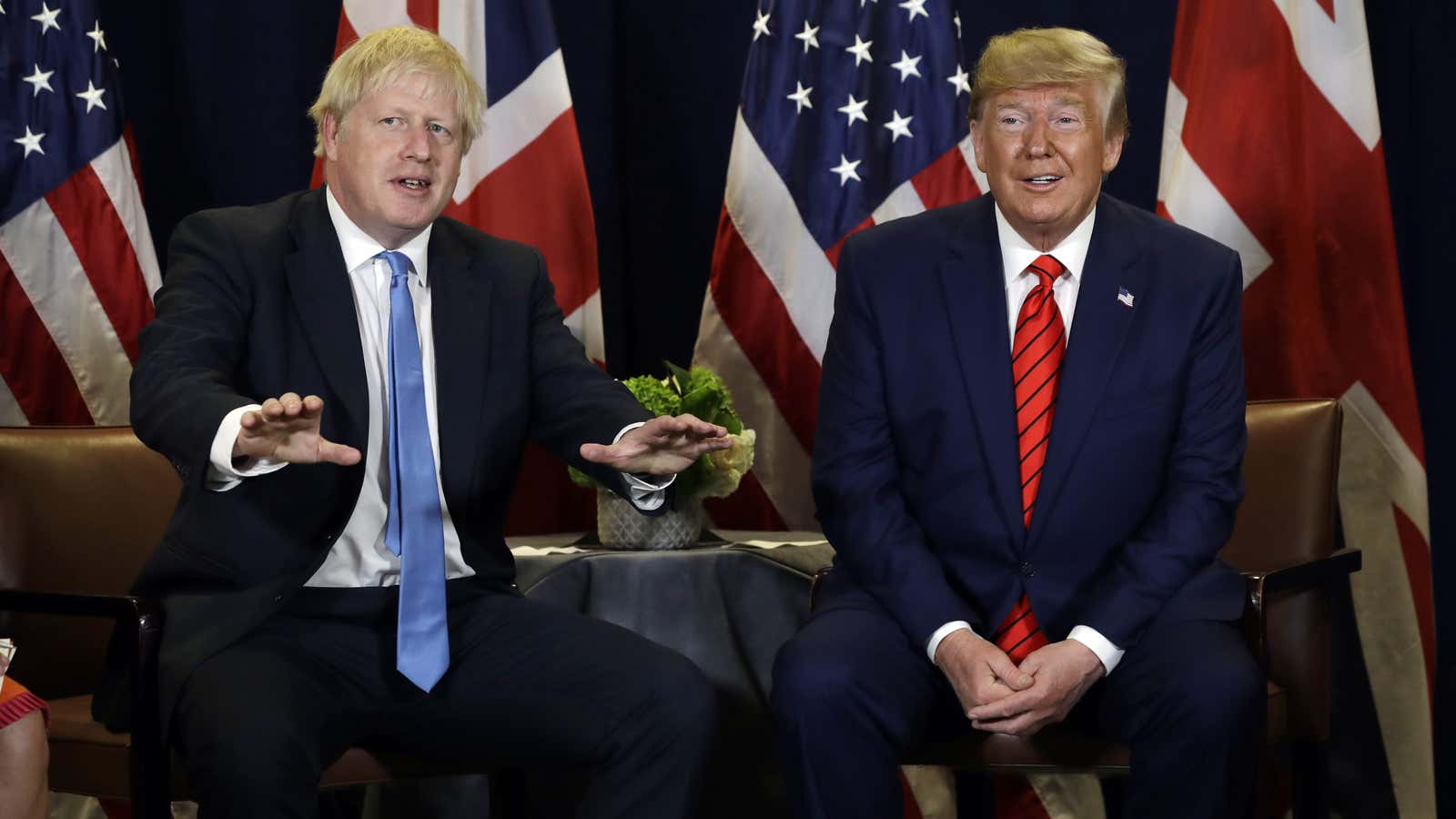One major issue animating Brexit backers during the 2016 referendum—and still the case now—was the idea of an unleashed Britain free to forge its own lucrative trade deals with countries, with the US as the biggest prize. Today, as negotiations kick off between the UK and US, that optimism looks ever more misplaced.
The UK government’s own estimates say that a free trade deal with the US could lift the domestic economy by up to 0.16% over fifteen years. This is not an insignificant number for a trade deal (the 2017 Canada-European Union agreement was once forecasted to give the EU a 0.03% boost). But it won’t do much to offset the 4.9% of GDP Brexit is expected to cost the British economy even with a trade deal in place with the EU, or the 7.6% under a no-deal scenario.
British officials said they will drive a “hard bargain” when it comes to talks. Yet that rhetoric will have to stand up to US negotiators and the prospect that the UK is in greater need of access to the US market rather than the other way around. That need is particularly acute as Britain moves further away from its largest trading partner, the EU.
These are some of the circumstances clouding the 100 or so negotiators from each side as they begin the first round of talks, which will be carried out virtually and last an initial two weeks, before recommencing every six weeks. Both sides have expressed hope for a quick deal, and the UK has set a target for an agreement by year’s end (a highly ambitious timeline).
One major obstacle could be the issue of food standards, and whether the UK can resist pressure to de-regulate in exchange for reaching a deal. The British government has previously said it would uphold consumer and environmental protections and a ban on chlorinated chicken that has irked American poultry farmers.
But perhaps the biggest hurdles will be how much of a priority Donald Trump, US lawmakers, and even UK prime minister Boris Johnson places on securing a deal. Trump has approached trade with other countries as a zero sum game, Congress must ratify any deal, and Johnson has only recently recovered from Covid-19—plus there’s a global pandemic in the way.
